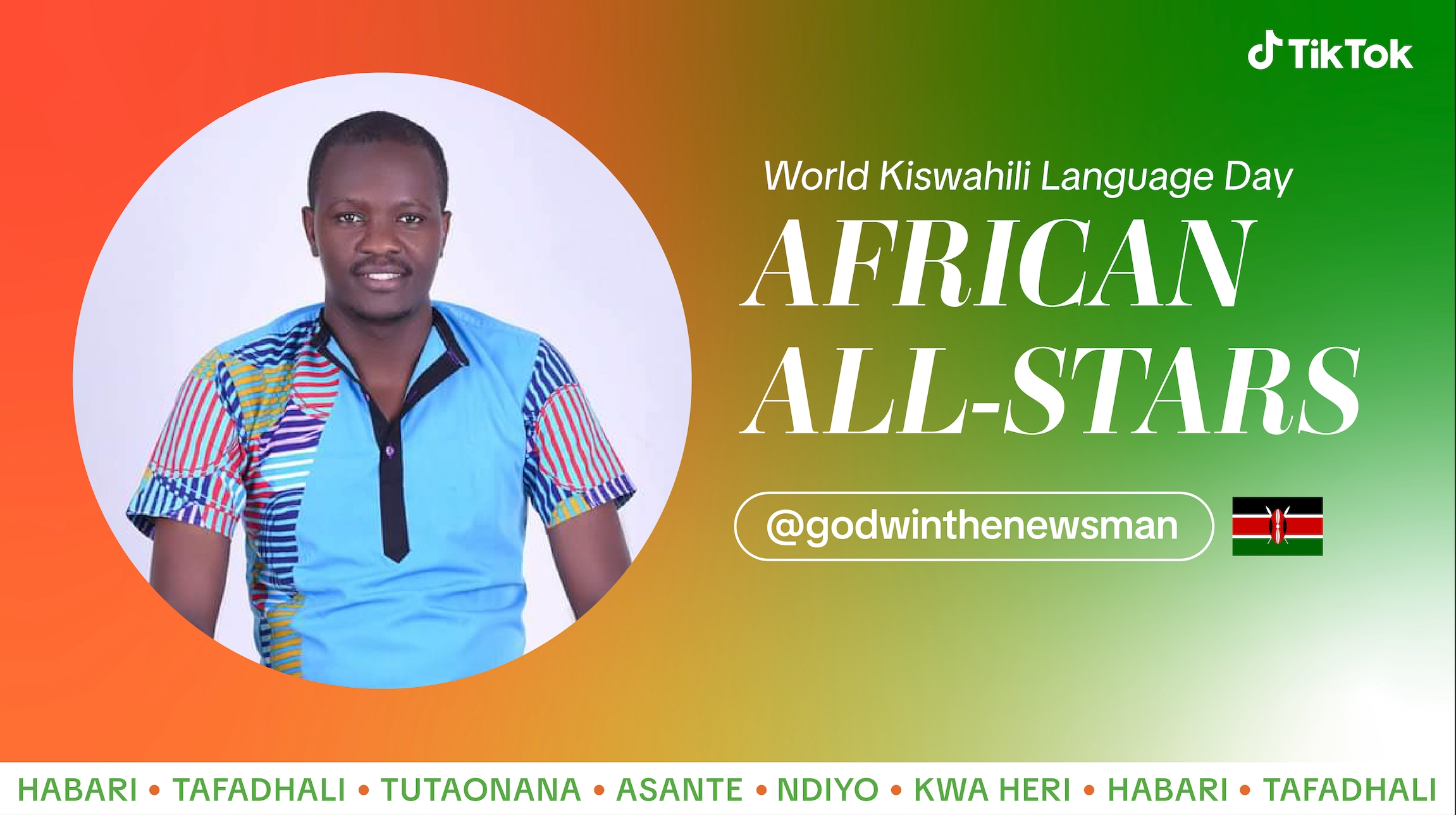CommunityJul 23, 2024
African All-Stars Series: Hezron Asewe
Straight from Kenya, Hezron Asewe, whips up delightful beginner-level Kiswahili vocab lessons, making language learning a breeze with a touch of Kenyan zest!

Can you tell us about yourself and what inspired you to start creating content in Swahili?
My name is Hezron Asewe a Kenyan professional teacher. My inspiration to start creating content in Swahili was my deep connection to East African cultures and languages. Growing up in a multicultural environment where Swahili was spoken, I developed a passion for the language and its rich heritage. I believe that by creating content in Swahili, I can contribute to preserving and promoting this beautiful language, and also reach a broader audience that may benefit from accessing information and entertainment in their native tongue. It's a way for me to celebrate and share the beauty of Swahili language and culture with the world.
How do you leverage TikTok to raise awareness and educate the community about Swahili?
To leverage TikTok to raise awareness and educate the community about Swahili, I create short, engaging videos that teach basic Swahili phrases, grammar tips, and cultural insights. I use clear and simple explanations enhanced with visual aids like subtitles or text overlays. Additionally, I employ the method of writing sentences in English and translating them into Kiswahili to facilitate easier learning for my followers. This approach helps them grasp the language more effectively. Furthermore, I collaborate with other TikTok creators who share an interest in language learning or cultural exchange. One of the positive aspects of TikTok that I leverage is creating collaborative videos, which allow us to reach new audiences and cultivate a sense of community among our viewers.
How has creating content in Swahili impacted your personal or professional life?
The creation of Swahili content has made me realize that many people are eager to learn the Swahili language. This is evident from the numerous messages I receive daily from people requesting to learn Kiswahili. This has motivated me to create daily content to educate people. Additionally, Swahili content has connected me with individuals from various countries who are interested in learning the language, and I have already started teaching virtual classes.
What challenges do you face when creating content in Swahili, and how do you overcome them?
The similarity between Kiswahili, Arabic, and some African languages has been a significant issue. Swahili is spoken across several countries in East Africa, with slight variations in vocabulary, grammar, and pronunciation. Adapting content to be broadly understandable across these regions can require awareness and flexibility. To overcome these challenges, I engage language experts and subject matter experts who understand both the language and cultural contexts, enhancing the quality of the generated content. However, the process of learning new things keeps me growing daily.
What advice would you give to other aspiring creators who want to start creating content in Swahili?
Begin today and stay motivated, as there are many eager learners out there. Consistently publish content to sustain engagement and attract new followers. Over time, this consistency will cultivate a loyal audience. Lastly, utilise social media platforms, forums, and other channels to promote your Swahili content effectively. Engage with your audience and actively participate in relevant discussions to foster a vibrant community.
CommunityJul 23, 2024
Africa

